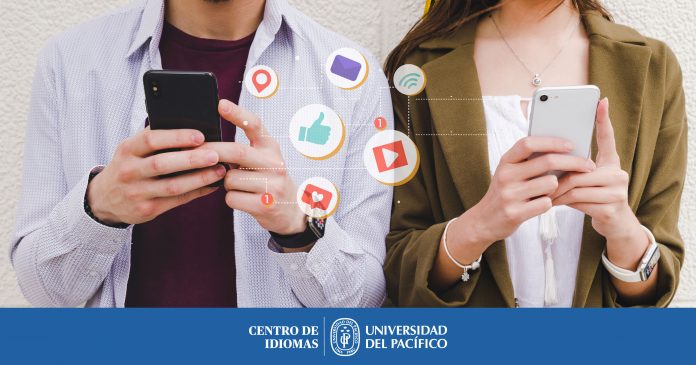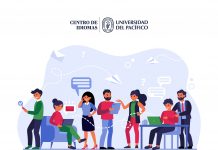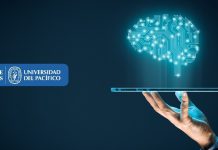Social skills are inherent in every human relationship and go along with language when expressing needs, feelings requests, wishes, you name it. Furthermore, human interactions always involve verbal and nonverbal communication codes that add meaning according to the context. Virtuality has been accused of being irreconcilable with social skills development, but is it so? Can we turn Artificial Intelligence into our allies to enhance social input within a classroom? Let´s talk about it.
First things first: Some facts
On the one hand, it can be perceived that human abilities are appreciated more than what some may think. Thus, an interest in preserving them for the future can be found in different reports or studies. One of them is the one released this year by the World Economic Forum. It reported the top 25 skills that large organizations value most in prospective employees. The highest valued categories are both, advanced cognitive skills and social and emotional skills. They foresee in new generations a lack of skills related to working with people and teams; soft skills such as empathy, leadership, collaboration, negotiation, innovation and creativity.
On the other hand, some studies focus on a more tangible present. For instance, Sorlie et al ( 2021) pointed out that socially skilled children generally perform better in most social areas of life, including school. They often have more positive attitudes towards educational settings, adapt better to the role of students, and achieve better grades than their less socially competent peers. They added that social skills are learned and influenced by the features of the context in which they develop. Thus, the context in which children, adolescents or young people mature is extremely important.
Therefore, social skills are needed now and will be needed in the future. How or when does artificial intelligence come into play?
Artificial Intelligence usage is not limited to any specific area. In fact, it is already widely employed, directly or indirectly, in our everyday activities. One example of that can be found in the social media platforms which are widely exploited. Their employment is associated with advantages and disadvantages as it is always observed in the use of new media. Unfortunately, it has been pointed out that some studies have found an association between the use of social networks and loneliness (Davidovitch et al., 2019); result of the fact that young adults spend long hours in front of screens and less time in face-to-face interactions with their peers. Loneliness in spite of being “connected” is a problem that could be partially solved by participating in sports (Erkmen & Altın, 2018) or simply by having the opportunity to interact face-to face with peers. A language class can provide our students with valuable opportunities to practise and develop their social skills, and at the same time take advantage of AI, trying to make it an ally!

Time to roll up our sleeves
Social skills: turn-taking, active listening or reading, and responding appropriately.
Assign students a role-play activity where they have a conversation with an AI chatbot to practise ordering food at a restaurant, making travel arrangements, or discussing a topic of interest. If possible, have students use Amazon Alexa, Google Assistant, Apple Siri, or Microsoft Cortana. These assistants understand natural language and user intent to offer personalized responses. Another possibility is to use REPLIKA with which students can exchange written messages and have a lot of practice.
Social skills: teamwork, communication, and problem-solving skills.
Assign student group projects or presentations using collaborative AI tools such as Jamboard, Miro, Pear Deck, Google Drive, Padlet or Video Ant (https://ant.umn.edu/). With these tools and many others, students can practice effective communication and collaboration while accomplishing a common goal.
Related to social skills development: self-awareness, self-management, goal-setting, and self-directed learning.
Have students use any app or platform that can provide instant feedback on language exercises, pronunciation, and writing tasks. Some of them could be English Pronunciation (Android), ELSA speak (Android, iOs), Memrise, or Duolingo. After completing a language exercise using an AI-powered tool, students can review the AI-generated feedback, reflect on their strengths and areas for improvement, and set goals for their language learning journey. This process promotes self-awareness, goal-setting, and self-directed learning. Furthermore, the application’s use can strengthen self-esteem since students can go at their own pace or repeat the exercise until they feel comfortable with the feedback. There´s no judgement on their performance, so students may not feel fear of failing or feeling embarrassed.
Is Virtuality really incompatible with the development of social skills? Can we turn Artificial Intelligence into our ally to enhance social input within a classroom?
The information and ideas just shared provide concrete examples of how teachers can use AI to promote social skills in language classes. It highlights the use of AI-powered conversational agents, AI collaboration tools, virtual language exchanges, and AI-powered feedback and reflection. These examples demonstrate how AI can facilitate social interactions, teamwork, and self-reflection, while still underscoring the importance of teachers in guiding and supporting the development of students’ social skills. Let´s say that AI has all the ingredients, even a recipe but the teacher is the one who knows which flavours and quantities are most valued by the dinner guests.
It is true that the development of social skills is in danger, but not necessarily because of AI; it may be because humans feel lonely and look for compensation in social media, AI companion, or anything else that makes them become addicted and forget relationships, family, or their community.
A red flag warning
We must keep in mind that AI can replace anything that can be automated, so we must avoid acting on automatic as when we teach just by the book or do not consider our students´ needs and characteristics. Additionally, we need to remember that learning is a process and that each student deals with language learning in different ways and at their own different pace.

Bonus
Self-esteem and language anxiety have a close relationship. In fact, students with a higher level of healthy self-esteem will have a lower level of language anxiety (Rubio-Alcalá , 2017). Teachers can help students improve their self-esteem by using different strategies and get them view themselves as successful language learners. Begin with baby steps: first try to identify their strengths and build on them to have pupils learn something a little more complicated.
Social skills are said to be positively correlated with self-esteem (Riggio et al. 1990). By giving students the power to communicate in another language, teachers can help their apprentices improve their self-esteem and that can help improve their social skills as well.
Finally, we have to prevent our replacement by becoming high quality teachers, by empowering ourselves with knowledge of methodology, and strategies to use any tool for our students´ benefit and our prowess.
References:
Davidovitch, Nitza & Zeev, Frenkel & Roman, Yavich. (2019). Social Media and Loneliness Forever connected? https://doi.org 10.5539/ hes. v9n2p 10
Erkmen, Gaye & Altın, Mehmet (2018). Examination of Social Media Attitudes and Loneliness Levels of Secondary Education Students with Regard to Gender and Sport. https://doi.org/10.5430/ijhe.v7n5p54
Rubio-Alcalá, F. D. (2017). Self-esteem and self-concept in foreign language learning. In C. Gkonou, M. Daubney & J.-M. Dewaele (Eds.), New insights into language anxiety: Theory, research, and educational implications (pp. 198-206). Multilingual Matters.
Riggio, Ronald & Throckmorton, Barbara & Depaola, Steve. (1990). Social skills and self-esteem. Personality and Individual Differences. 11. 799-804. 10.1016/0191-8869(90)90188-W
Sørlie, Mari-Anne & Amlund, Kristine & Berg, Kristin (2021). Development of social skills during middle childhood: Growth trajectories and school-related predictors, International Journal of School & Educational Psychology, 9:sup1, S69-S87, DOI: 10.1080/21683603.2020.1744492
World Economic Forum (2023). The Future of Jobs Report 2023. https://www.weforum.org/reports/the-future-of-jobs-report-2023?gclid=Cj0KCQjwmtGjBhDhARIsAEqfDEc30B8eR4adfFrNQruEUrWefkZa555wrmUaUWbeB2hra87TGbYvHjkaAiiPEALw_wcB










